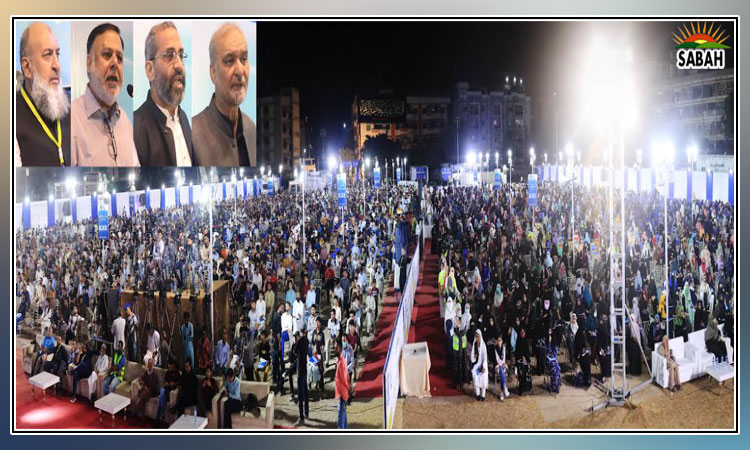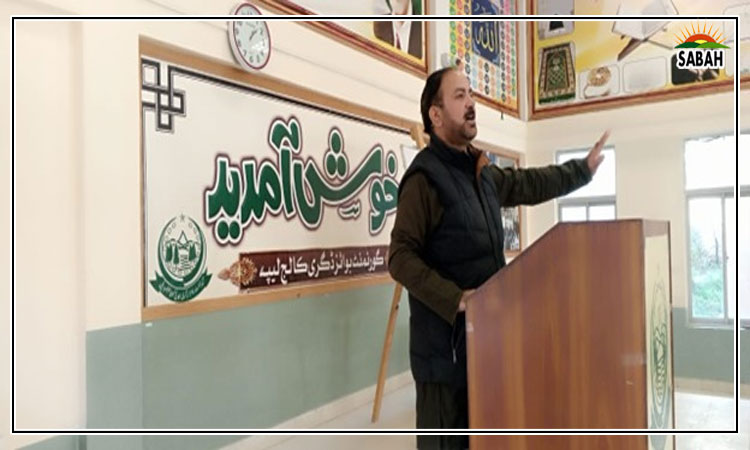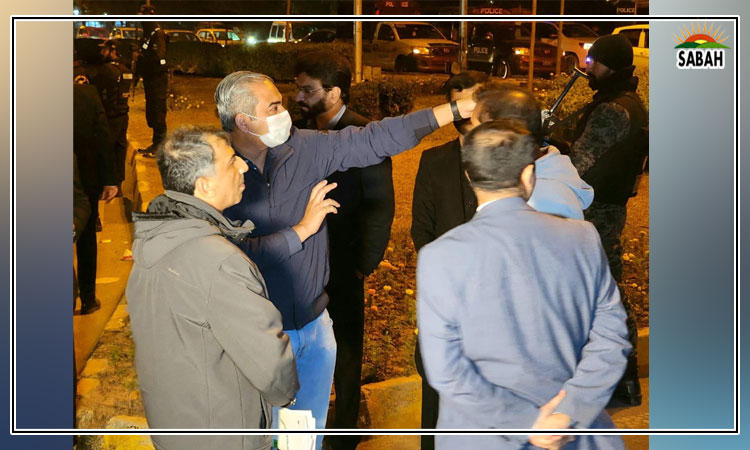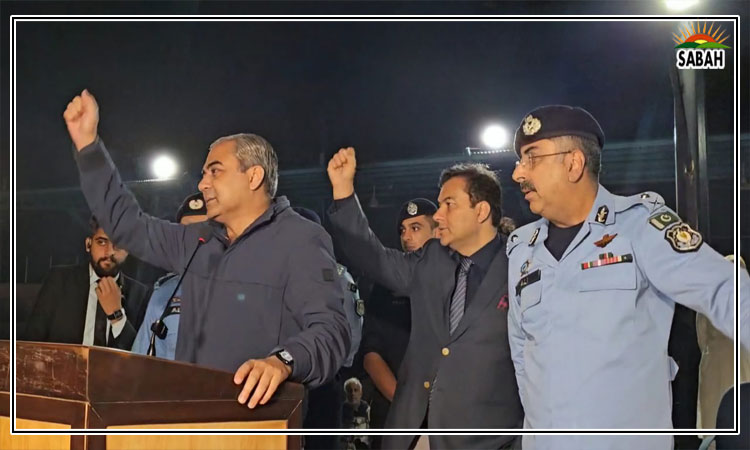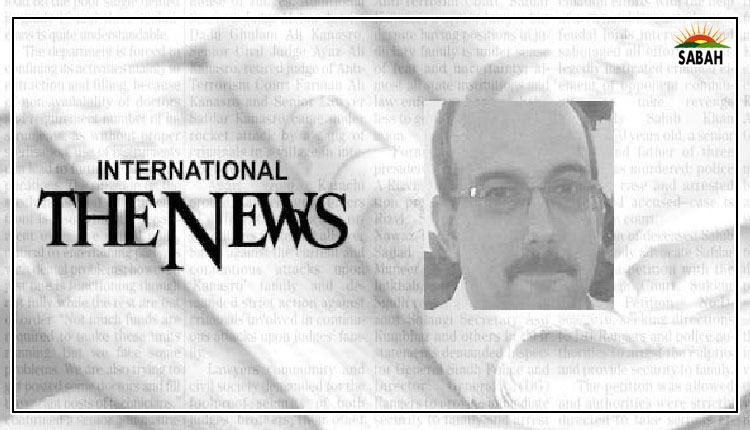Writing about ideas… Dr Naazir Mahmood
The history of ideas is an interesting field; you traverse from concepts to definitions to ideas to philosophies and the universe before you appears to be unending. It is history with all its fascinating contours, unfolding layer after layer of ideas as they evolved through centuries and millennia.
Philosophy is the bedrock of any history of ideas, be they economic, feminist, fictional, humanist, intellectual, political, or social. Textual analysis is the building block that underpinned the evolution of the history of ideas in the 20th century.
It is a challenging discipline that requires an immense capacity for profound intellectual thought as it involves connections and controversies with interdisciplinary approaches to understanding the development of ideas over time. In the nearly eight decades of Pakistans existence, it is hard to find even eight persons who have contributed to our comprehension of history of ideas.
Aziz Ali Dad is one such intellectual who has explored the history of ideas with its vast diversity and dimensions. His collection of writings Nomadic Meditations: Essays on the History of Ideas presents a motley collection of articles and papers that he penned over the years. From civilization and ideas to epistemology and philosophy, the collection offers insights into a wide range of subjects. Spanning hardly 200 pages, it contains five sections beginning with Thinking and ideas. It is interesting to read how Aziz Ali Dad elaborates on the idea of unthought in his essay titled Thinking in the age of unthought.
He begins with the observation that In the case of Pakistan, the intellectual scene related to the philosophical discourses about thinking is completely sterile. He distinguishes unthought from absence of thinking in an insightful manner. Unthought is typical of human as it stems from his/her escape from thought. It can be termed as the alter ego or unconscious part of thought. The less thought we have the more unthought we have. For instance, the existing state of Muslims is the state of unthought for they refused to engage with the new developments brought about by the flux of time.
The section on Self and civilization contains six essays such as Sources of the self, Crusades and the construction of assassin myth, and Islamdom and the terror of modernity. Aziz Ali Dad asserts that throughout history the self has remained central to human thought and for millennia various disciplines and philosophies have tried to explicate the complex nature of self. In the overall timescale of history, Pakistan is a nascent entity. Therefore, the project of nation building in Pakistan entails formation of a new self that conforms to the collective identity.
In Crusades and the construction of assassin myth, the author takes stock of the relationship between the crusaders and the Nizaris of Syria, and the process of the formation of the assassin legend. He examines the misperceptions of the Crusaders about the Nizari Ismailis and how the lack of knowledge about Islam in general and the Ismailis in particular gave way to imaginative speculation to fill the gaps of knowledge.
During the Crusades, Christians came to know about Islam as a military force extending its boundaries. They were unable to understand Islam as a historical and intellectual phenomenon because the religion was new and most of them feared its military prowess.
Islamdom and the terror of modernity is an essay that unpacks the terms of Islamdom, modernity, and terrorism with the authors enlightening commentary. After giving some socio-political background to Islamdom and modernity, Aziz Ali Dad delves into how radicals on both sides of the divide the West and Islamists analysed terrorism with the jaundiced eyes of ideology and ignored the socio-political and economic structure of the world that breeds terrorism. The writers writing Islamdom during the 12th century failed to diagnose the root cause of suicide attacks on eminent personalities of the age by fidaeen.
The most interesting section of Nomadic Meditations is about philosophy. Essays such as Soul and city in Plato, Was Tusi a philosopher?, and Philosophical debate or debacle are all worth reading. Though at times they are a bit of a tedious reading but for those interested in philosophical debates, they provide ample food for thought. Platos The Republic is a seminal text in the history of ideas and Aziz Ali Dad gives us a guided tour on the theoretical grounds for the creation of just city. Plato uses his teacher Socrates words to identify different classes in the state.
The essay about Nasir al-Din Tusi presents the period where the Abbasids and Ismailis were vying with each other for intellectual and political domains. Tusi was born in 1201 (not to be confused with two other Tusis: Nizamul Mulk Tusi and Shaykh Tusi of the 11th century). Nasir al-Din Tusis famous autobiography Sayr wa suluk gives insights into his intellectual and spiritual developments. Tusi handles the issue of the choice between speculative philosophy and the guidance of an authoritative teacher and the process of resolving this conflict for was the subject matter of the Sayr wa suluk.
Philosophical debate or debacle begins with the philosophical debate between Ernst Alfred Cassirer and Martin Heidegger in 1929. The central question for the discussion was What is it to be a human being? Those who have read Thomas Manns novel The magic mountain could recall that famous place in Switzerland where this debate was held, though the novel was written in 1924. The purpose of the debate was to promote peace and understanding in the wake of the First World War that had ended 10 years earlier but left deep scars on the European intellectual and political landscapes.
Aziz Ali Dads take on epistemology is equally intriguing as the section dealing with this branch of philosophy contains essays such as Theory laden observation and Dissecting Derridean deconstruction. Taking a cue from Norwood Russell Hanson about theory-laden observation in scientific language, the author discusses Patterns of discovery: an inquiry into the conceptual foundations of science. Hansons investigation into the nature of observation and its relationship with theory are quite distinct from traditional accounts regarding the observation and causality. He rejects the privileged position of observation over theory in the received view.
Dissecting Derridean deconstruction is a brief article on Jacques Derrida and his philosophy that drew inspiration from German philosophers Friedrich Nietzsche and Martin Heidegger who refused to go with the tide of rationality sweeping across the West following the enlightenment. Ali Dad explains to his readers that Derrida critiqued metaphysical systems and its manifestations. What deconstruction does is that it destroys the monocentric thought, unity of reality and totality of being by shaking its epistemological premises Deconstruction opens new horizons in epistemology by collapsing the guarded boundaries of various genres and disciplines.
Finally, the last section is Poetics that deals with the poetics of Avicenna coupled with a chapter on Meeting of horizons: formation of aesthetics in arts and another on Dance and dissonance. Aziz Ali Dad discusses Avicennas Commentary on the Poetics of Aristotle. That was the golden period of Muslim intellectual leaps when philosophers such as Avicenna studies Greek masterpieces and Aristotles writings occupied a prominent place on the literary firmament. Avicenna believed that there were two reasons for the creation of poetry; the first is the pleasure of imitating and the second is the use of imitation from childhood for expressing ideas.
Nomadic Meditations is a unique blend of several strands of the history of ideas not commonly discussed in Pakistan. Aziz Ali Dad has done a commendable job by bringing these essays together to compile his book that will surely attract the attention of readers interested in the history of ideas.
The writer holds a PhD from the University of Birmingham, UK. He tweets/posts @NaazirMahmood and can be reached at: mnazir1964@yahoo.co.uk
Courtesy The News


